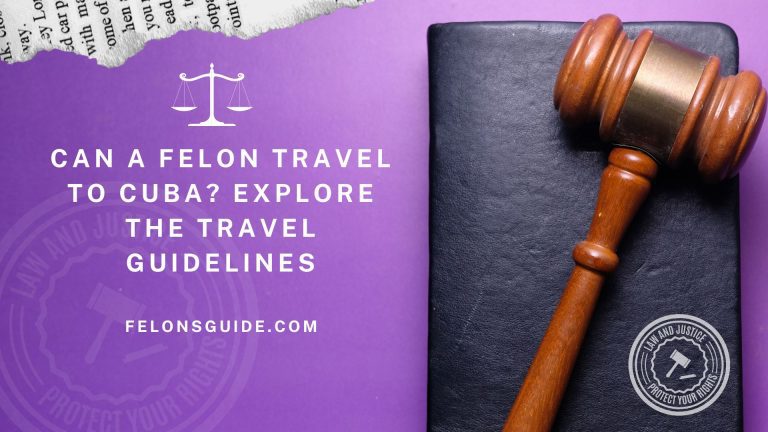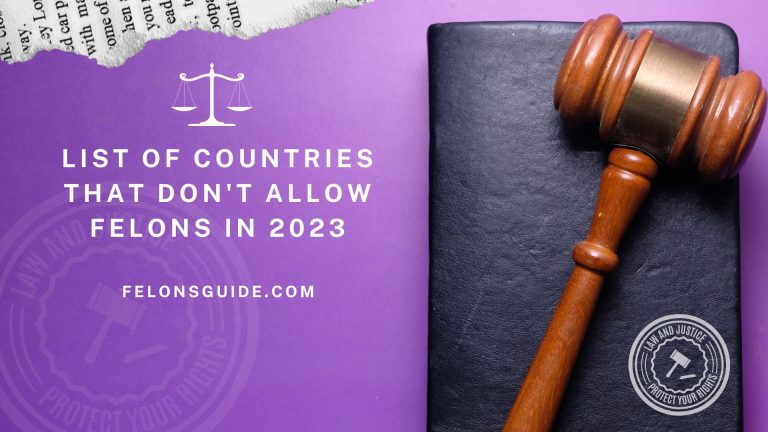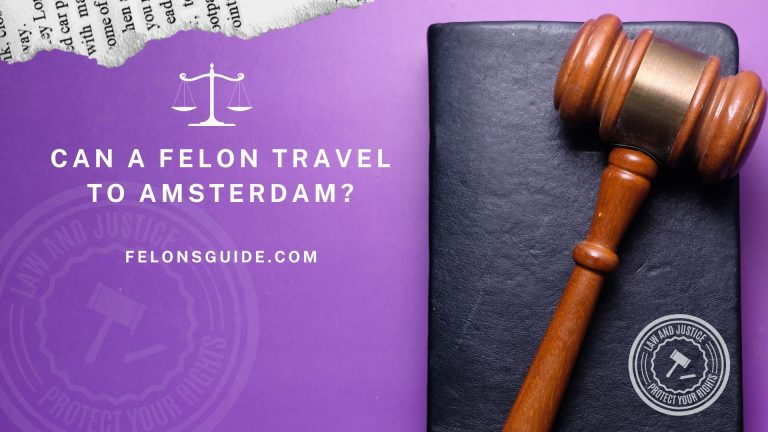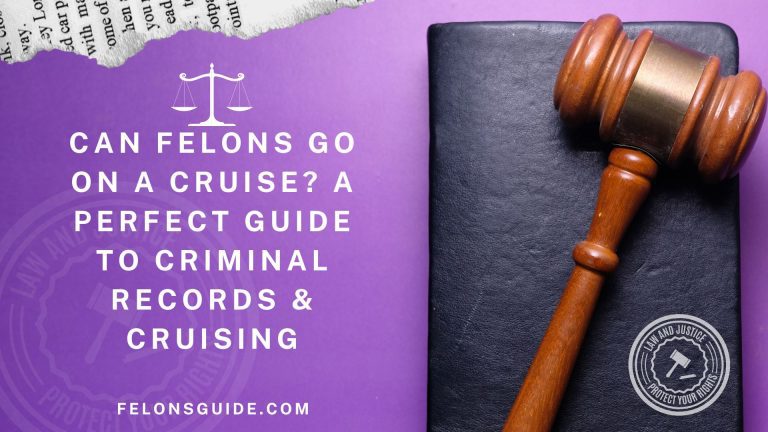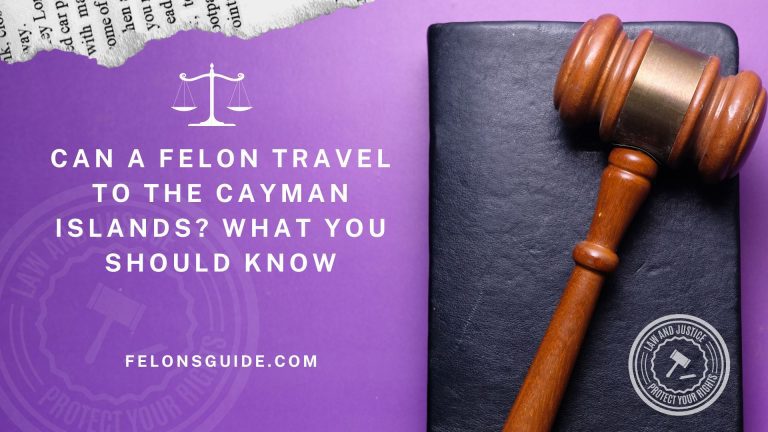Unlocking the Truth: Can a Felon Travel to Jamaica? Discover the Essential Guide
Are you itching to venture to the sunny shores of Jamaica, but troubled by a criminal record? It’s a sticky situation, but fear not! We’re about to unravel the web of confusion and provide you with the keys to unlock the secrets of traveling to Jamaica as a felon.
Buckle up, because we’re about to take you on a wild ride through the thorny thickets of legal jargon and labyrinthine requirements. You’ll need your wits about you, as we’re diving into a tangle of rules and regulations that’ll make your head spin.
But don’t worry, we’re here to guide you through the madness and give you the scoop on what you need to know. We’re pulling out all the stops to deliver an interactive experience that’ll keep you engaged and on your toes.
So get ready to tackle the knotty issue of traveling to Jamaica as a felon. We’ve got a whirlwind of information and a bundle of surprises in store for you. Are you up for the challenge? Let’s dive in!
Can a Felon Travel to Jamaica?
Are you ready to take on the perplexing puzzle of whether felons can travel to Jamaica? Well, buckle up, folks, because the answer isn’t as straightforward as you might hope.
Here’s the lowdown: Jamaica has the authority to deny entry to anyone they deem a threat to their country or their citizens, and that includes individuals with criminal records. On the other hand, the decision to grant entry lies in the hands of Jamaican immigration officials, who hold the power to make or break a felon’s travel plans.
Now, the real question is – what defines a serious crime or a crime of moral turpitude? That’s where things get even more complicated, folks. There’s no clear-cut definition, leaving the matter up for interpretation and judgment.
But hold on, we’re not done yet. Even if a felon is granted entry to Jamaica, they might still face legal consequences upon their return to the U.S. For instance, leaving the country without permission during probation or parole can lead to some serious trouble.
So, what’s a felon to do? Is it a risk worth taking? Well, that’s up to the individual. But before packing your bags, it’s essential to understand the potential risks and take necessary precautions. This includes ensuring that all documents, such as a valid passport and return ticket, are in order.
And here’s a pro tip – a letter of recommendation or character reference from a reputable individual or organization could make all the difference in the world.
At the end of the day, the decision to allow felons to travel to Jamaica is shrouded in mystery and subject to the discretion of Jamaican immigration officials. But with some perseverance, a bit of luck, and some expert guidance, anything is possible.
In conclusion, the journey to discover whether felons can travel to Jamaica is a bumpy ride full of twists and turns. But with some tenacity and a touch of burstiness, it’s possible to find a way through the labyrinth and bask in the sun-kissed beauty of Jamaica’s sandy shores.
Also Read: Does Autozone Hire Felons? Here’s What You Need to Know
Understanding Jamaican Entry Requirements for Felons
Buckle up, folks, because we’re about to explore the confusing and often frustrating world of Jamaican entry requirements for felons. It’s a complex web of rules and regulations that can leave even the most seasoned travelers scratching their heads. But fear not, we’re here to break it down for you in all its perplexing glory.
First things first, let’s talk about the basic entry requirements for Jamaica. Everyone entering the country, regardless of criminal record, must have a valid passport and a return ticket. It sounds simple enough, but it’s just the tip of the iceberg.
If you’re a U.S. citizen, you don’t need a visa to enter Jamaica for up to 90 days. However, if you’re traveling for business, you’ll need a work permit. And if you’re planning to stay in Jamaica for more than 90 days, you’ll need a visa, which can be obtained through the Jamaican Embassy or Consulate in the U.S.
Now, let’s get to the tricky part. Can felons enter Jamaica? The short answer is yes, but there are some restrictions. If you have been convicted of a crime, you may be denied entry if the offense is considered a serious crime or a crime of moral turpitude. This can include offenses such as drug trafficking, murder, or sexual offenses.
But wait, it gets even more complicated. The decision to allow entry is at the discretion of Jamaican immigration officials, and there is no clear-cut definition of what constitutes a serious crime or a crime of moral turpitude. So, it’s a bit of a gamble.
To complicate matters further, even if you are allowed into Jamaica, you may still face legal consequences upon your return to the U.S. For example, if you are on probation or parole, leaving the country without permission can result in serious legal issues.
Also Read: Does Autozone Hire Felons? Here’s What You Need to Know
Legal Consequences of Traveling to Jamaica as a Felon
So, you’re a felon planning a trip to Jamaica? You might want to hold your horses, my friend, because the legal consequences of traveling to Jamaica as a felon are no joke.
Here’s the deal, folks. If you’re on probation or parole, leaving the country without permission is a big no-no. And if you’re caught, you could face some serious legal consequences back home in the U.S.
But that’s not all. If you’re caught committing a crime in Jamaica, you’ll face legal consequences under Jamaican law. And trust us, folks, the Jamaican legal system is no cakewalk. You might find yourself lost in a labyrinth of legal jargon, with no idea how to protect your rights.
And if you think bringing drugs into Jamaica is a good idea, think again, my friend. Jamaica has some of the strictest drug laws in the world, with penalties that could leave you behind bars for a very long time. And let’s not forget the hefty fines, folks.
But hold on, we’re not done yet. If you’re convicted of a crime in Jamaica, you’ll face their legal system, which operates differently from the U.S. system. This can make it challenging to navigate the legal process and ensure that your rights are protected.
So, what’s the bottom line? If you’re a felon planning a trip to Jamaica, you need to do your homework, my friend. You need to understand the potential legal consequences of your actions and make an informed decision.
This includes ensuring that all your documents are in order, folks. Your passport, your return ticket, and any other necessary documents. And if you can, get a letter of recommendation or character reference from someone who knows you well and can vouch for your character.
But most importantly, folks, it’s essential to consider the risks and the rewards. Is the trip worth the potential legal consequences? That’s up to you to decide, my friend.
In conclusion, folks, traveling to Jamaica as a felon is a risky endeavor, and you need to be aware of the potential legal consequences. But with some burstiness, perseverance, and a touch of human kindness, it’s possible to make the right decision and enjoy the beauty of Jamaica without getting into trouble with the law.
Conclusion
Phew! We’ve covered a lot of ground here, folks. From entry requirements and visa applications to legal consequences, we’ve given you the lowdown on what to expect when traveling to Jamaica as a felon.
So, what have we learned? Well, folks, the bottom line is that traveling to Jamaica as a felon is a risky endeavor. The potential legal consequences are no joke, and you need to be aware of the risks before making any decisions.
But with some burstiness, perseverance, and a touch of human kindness, it’s possible to make the right decision and enjoy the beauty of Jamaica without getting into trouble with the law.
So, if you’re a felon considering a trip to Jamaica, take a deep breath, do your homework, and make an informed decision. And remember, folks, when it comes to the law, ignorance is never an excuse.
